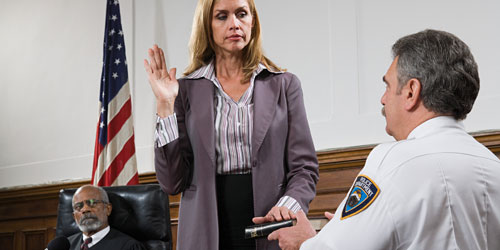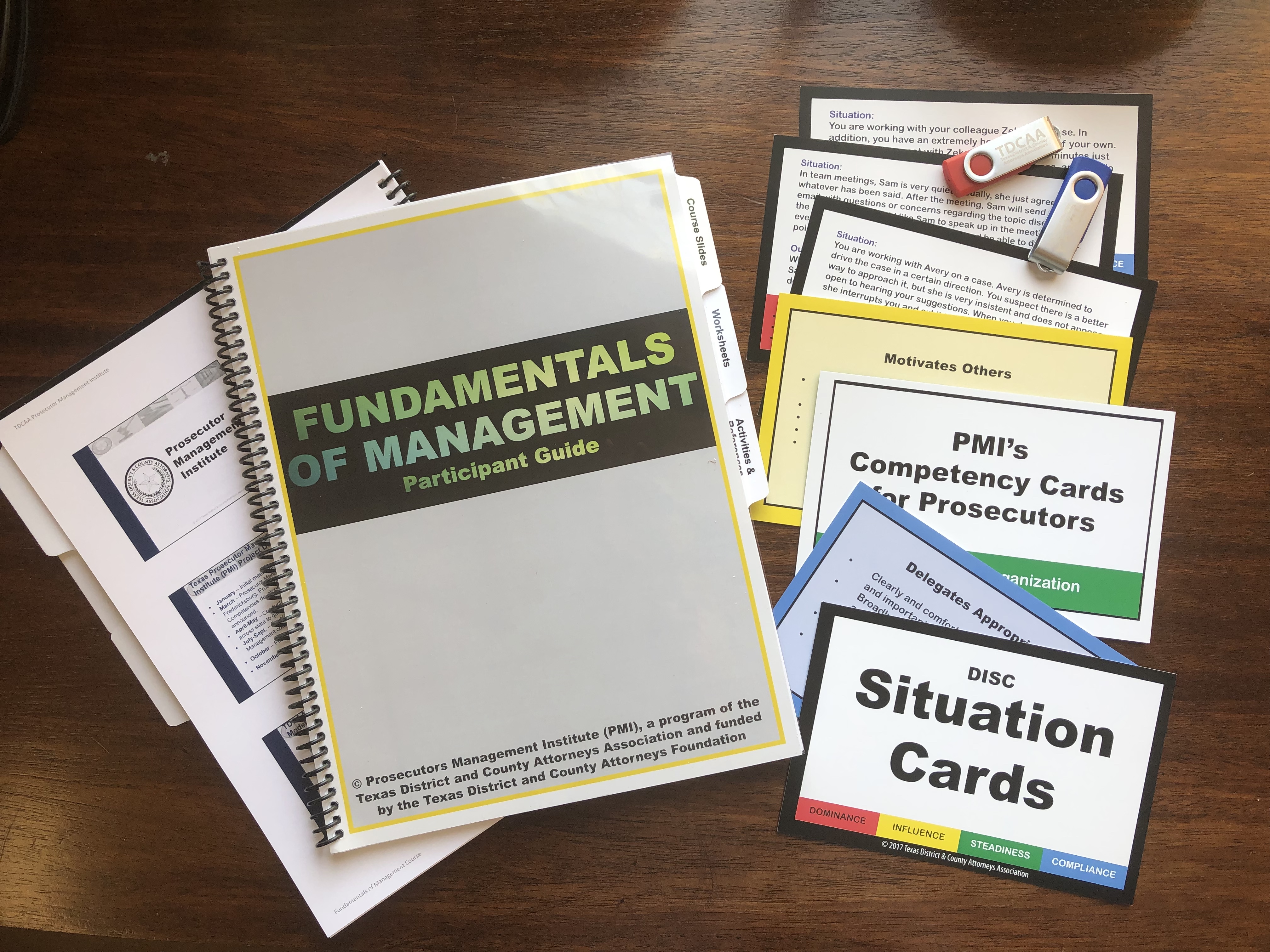Congratulations, you survived 2018! Unfortunately, your reward is another legislative session. Prepare yourselves accordingly.
Bills and bills and bills and bills
Legislators started filing bills on the Monday after the general election, and as of earlier this week they had pre-filed 833 bills, of which we are already tracking 245 (29%). To view the most interesting of those proposals, visit the Legislative page of our website and select one of the three bill tracks on that page for the Penal Code, the Code of Criminal Procedure, and other “Bills to Watch.” We have dozens of other bill tracks—criminal records, DWI, drugs, family violence, sex crimes, and many, many more—so if you want information about a more specific subject, contact Shannon for those details.
Interim committee reports
Legislative committee staffers have been racing to finish their interim reports before the holidays, and of the dozens of reports released over the past six weeks, several contain recommendations that may interest you. Those reports (accessible through the links below) include the following highlights:
Joint Interim Committee to Study State Judicial Salaries
- This committee did not make any recommendation to increase the judicial benchmark salary, but its report (see link above) lays out the history of this issue and describes the fiscal impact of increasing that salary by 5, 10, and 15 percent.
- One member of the committee wrote separately to notify that committee that he would be filing a bill to de-link legislative retirement from the benchmark judicial salary. Should that happen, we will try to make sure that does not include district attorney retirement.
Senate Finance Committee Recommendations
- Hurricane Harvey cost Texas ~$2.7 billion in FY 2018, and continuing costs in FY 2019 and beyond are expected to add as much as $1.9 billion to that total. Federal and local governments will cover much of those damages, but expect the legislature to appropriate $1–2 billion next session to address Harvey-related expenses.
Senate Health & Human Services Committee Recommendations
- Expand access to medication-assisted treatment (i.e., methadone, buprenorphine, and naltrexone) for opioid use disorder.
- Refer patients flagged by the state’s Prescription Monitoring Program to treatment services.
Senate State Affairs Committee Recommendations
- Add flexibility to certain open meetings and open records laws during natural disasters.
- Clean up the “looting” enhancement in Penal Code §12.50 and expand it to certain other property crimes.
- Consider providing OAG with concurrent jurisdiction to criminally prosecute certain human trafficking and abortion-related offenses to ensure uniform enforcement across the state and eliminate “safe havens” for those offenders.
- Consolidate and simplify court cost and fee structures and make sure all court-related collections are used for a legitimate civil or criminal justice purpose.
House Corrections Committee Recommendations
- Modify probation funding formulas to increase resources for high-risk cases and move successful lower-risk cases off probation sooner.
- Increase funding to provide for more individualized, community-based rehabilitation for young adults (17–25) and mothers/primary caregivers on felony supervision.
- Increase the use of clemency by the executive branch.
- Repeal Penal Code §12.44(a) authorizing county jail sentences for state jail felonies.*
- Seal adult arrest records and allow expunction of convictions after five years.*
- Require courts and prosecutors to submit to data evaluation and other “metrics” for their decision-making*
[* – recommended but never discussed or described in the body of the report, which means it was cut-and-pasted from materials submitted by various advocacy groups.]
House Government Transparency & Operation Committee Recommendations
- Relax certain open meetings requirements during natural disasters.
- Reduce unnecessary submissions to OAG’s Open Records Division.
House Opioids and Substance Abuse Select Committee Recommendations
- Include meth use/abuse in any targeted solutions because it is more prevalent than opioid use/abuse in some parts of the state.
- Increase access to opioid antagonists and medication-assisted treatment (i.e., methadone, buprenorphine, and naltrexone) for opioid use disorder.
- Replace paper scripts with e-prescriptions and impose legal penalties for misuse of information in the state’s Prescription Monitoring Program.
- Increase state funding for substance abuse treatment through pre-trial diversion.
- Enhance criminal penalties for fentanyl-related offenses.
- Enact “Good Samaritan” legislation providing a legal defense to prosecution for a person who helps obtain medical assistance for someone overdosing.
- Expand drug courts, create a statewide data system to track participants, and move oversight of drug courts from the Governor’s Office to the Office of Court Administration.
Legislative rotation sign-up now open
As you know, TDCAA can serve as your eyes and ears at the capitol, but the voice they hear needs to be yours. Our job is to facilitate that communication, and one of the programs through which that happens is our legislative rotation schedule. To learn more about how you can get involved in the legislative process—even if it is only to get an up-close-and-personal view of the sausage-making for your first time—contact Shannon for the details. And if you already know when you’d like to come to Austin, give those dates to Shannon as well so he can get you on the calendar. Remember, the squeaky wheel gets the grease at the Capitol, so don’t be shy!
Prosecutor Trial Skills Course registration is open
Registration is open for our January 2019 Prosecutor Trial Skills Course in Austin. From plea-bargaining to closing argument, this training will cover the tips and tools necessary to see that justice is done, both for new prosecutors and those just looking for a refresher. For more information or to register, please click here.
New felony judgment forms
From our friends at OCA:
“Article 42.01, Sec. 4, of the Texas Code of Criminal Procedure requires the Office of Court Administration to promulgate a standardized felony judgment form that conforms to the requirements of criminal judgments that must be used by courts entering felony judgments. OCA has worked with stakeholders to update the felony judgment forms to comply with changes in the law since the last promulgation of the forms. The updated felony judgment forms (along with a few new forms), instructions, and affirmative orders and special findings have been posted at https://www.txcourts.gov/rules-forms/forms/. The revised forms become effective on January 1, 2019. If you have any questions or concerns, please call Margie Johnson, OCA Assistant General Counsel, at (512) 936-1183 or send an email to her at margie.johnson@txcourts.gov.”
Schedule for future legislative updates
When you return in the new year, these updates will be issued every Friday from January through May. (At which time referrals for carpal-tunnel syndrome treatment will probably be welcomed.)
Quotes of the Month
“Let me just say, as a pro-life conservative, I believe that criminal justice reform is, and should be, a pro-life issue because right now, the State of Texas is robbing life from Texans by keeping them behind bars because we’re mad at them, when they could be restored and reformed and rejuvenated and could be productive, tax-paying citizens of this state.”
State Rep. Jeff Leach (R-Plano), on a Texas Tribune panel previewing the upcoming session, when asked what other issues might be addressed by the Legislature in 2019.
“Every non-violent offender could be released today, and we would still have mass incarceration. … [T]hose who are guilty of the crimes for which they are serving long sentences must be included in reform efforts.”
Jane C. Murphy, director of the Juvenile Justice Project at the University of Baltimore School of Law, in an op/ed she wrote for the Baltimore Sun about the next frontier in criminal justice reform: early release for violent offenders.
“This is not the backdoor to legalizing marijuana. … [I] hate to break it to the potheads, but marijuana is still illegal in Texas and under federal law. Ending the ban on hemp won’t change that. This is about giving farmers another opportunity to thrive.”
State Agriculture Commissioner Sid Miller (R-Stephenville), on why he wants Congress to remove hemp from the federal list of controlled substances(which they may be starting to do under the most recently-passed Farm Bill).
“The thing that nobody predicted (was that) normalization, commercialization, would be a magnet for international black-market activity.”
Bob Troyer, former U.S. Attorney in Colorado, commenting upon the drastic increase in black-market marijuana production in that state since recreational use of the drug was legalized.
“We’re not living in ‘West Side Story.’”
State Rep. Joe Moody (D-El Paso), on why he has filed a bill to legalize brass knuckles and related weapons.
“Whenever someone uses a survey to claim what Americans want when it comes to a complex policy position, remember that only 26 percent of Americans can name all three branches of government.”
Scott Greenfield, New York criminal defense attorney and prolific tweeter/blogger.
[NOTE: TDCAA’s office will be closed for the holidays from Monday, December 24, 2018, through Tuesday, January 1, 2019. We hope everyone has a wonderful holiday break and we look forward to working with you in 2019.
May all y’all enjoy peace and prosperity in the new year!]



